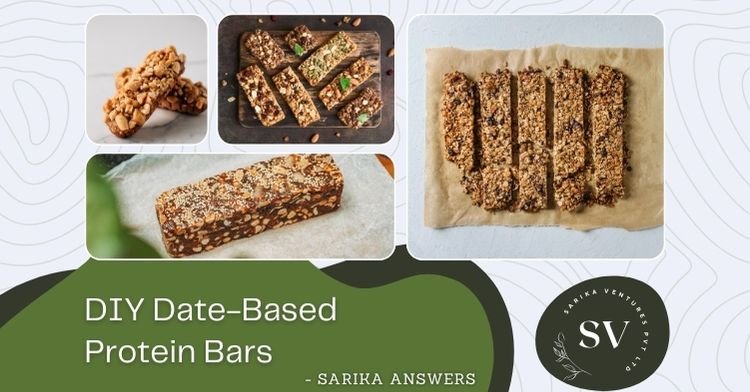Introduction: A Natural Choice for Baby Food
As parents increasingly turn toward natural, nutrient-dense foods for their infants, date powder has emerged as a popular choice in the baby food industry. Derived from dried, ground dates, date powder provides a naturally sweet, wholesome alternative to refined sugars and other sweeteners, making it an excellent option for developing taste preferences in young children. Not only does it add a touch of sweetness to baby foods, but it is also packed with nutrients essential for healthy growth and development.
The benefits of using date powder in baby food are substantial; it’s rich in fiber, minerals, and antioxidants, making it an excellent addition to both homemade and commercial baby food products. This essay will explore the nutritional advantages of date powder and its application across various baby food products, as well as discuss safety considerations and the expanding market for natural ingredients in baby nutrition.
Why Date Powder is Ideal for Baby Food
The baby food industry has seen a shift toward natural, plant-based, and nutrient-rich ingredients. Date powder stands out due to its versatility, mild flavor, and high nutritional content. With parents becoming more mindful of what goes into their babies’ food, date powder provides an answer to concerns about added sugars, artificial additives, and the lack of essential nutrients in conventional sweeteners.
Nutritional Benefits of Date Powder for Babies
- High Fiber Content: Dates are naturally high in dietary fiber, which supports healthy digestion. For infants, fiber promotes smooth bowel movements and prevents constipation, a common concern as babies transition from milk to solid foods.
- Rich in Essential Minerals: Date powder contains significant levels of potassium, calcium, and magnesium—minerals essential for bone development, muscle function, and maintaining electrolyte balance. These minerals play a crucial role in a baby’s growth and development.
- Iron for Healthy Blood: Iron is vital for cognitive development and oxygen transport. Since iron deficiency is a common issue among infants and toddlers, adding date powder to their diet can help provide a natural iron source, reducing the risk of anemia.
- Natural Sugars and Carbohydrates: Unlike refined sugars, date powder provides natural sugars that release energy gradually, helping maintain stable blood sugar levels. This sustained energy release can prevent sugar spikes and crashes, which are especially undesirable in young children.
- Antioxidants for Immune Health: Dates are rich in antioxidants, such as flavonoids and carotenoids, which help protect the body from oxidative stress. In infants, antioxidants support immune function, helping to ward off infections and support overall health.
How Date Powder is Incorporated into Baby Food Products
The baby food industry has embraced date powder due to its ease of incorporation into a variety of foods. Date powder can be used as a standalone ingredient, or as a natural sweetener and flavor enhancer in multi-ingredient baby foods. Below are some common ways date powder is used in baby food production:
- Fruit Purees: Fruit purees are popular among infants due to their smooth texture and sweet taste. Adding date powder to purees like apple, banana, or pear not only enhances the sweetness but also boosts the nutritional profile. The fiber in date powder works well with the fiber in fruits, aiding in digestion and adding bulk to the puree.
- Cereals and Porridges: Baby cereals and porridges are often fortified with additional nutrients to meet dietary needs. Date powder complements grains such as oats, rice, and barley by adding both flavor and nutrition. Parents can also mix date powder into homemade cereals to give their babies a wholesome breakfast.
- Teething Biscuits and Baby Snacks: Teething biscuits are one of the earliest snacks introduced to infants, helping them transition to solid foods. Date powder is often added to these biscuits as a natural sweetener. Since dates are naturally sticky, date powder also serves as a binding agent, making the biscuits hold their shape while providing a pleasant chewiness.
- Vegetable Blends: Some vegetable blends are often bitter or bland in taste, which can make it challenging for babies to enjoy. Adding date powder to vegetables like spinach, peas, or carrots balances the flavors and makes them more palatable, encouraging babies to consume a variety of vegetables without added sugar or artificial flavors.
- Yogurt and Dairy-Based Foods: Date powder blends seamlessly with dairy products like yogurt, providing a mildly sweet taste without overpowering the natural flavor of the milk. Many brands are now offering baby yogurts with date powder as a substitute for artificial sweeteners, creating a creamy, nutrient-rich snack for babies.
- Rice Cakes and Puffs: Rice cakes and puffs are popular for their light, crunchy texture and easy-to-grab size. Date powder can be sprinkled on these snacks, enhancing both flavor and nutrition, and making them a more wholesome option for infants and toddlers.
Key Considerations in Using Date Powder in Baby Food
Safety and Allergen-Free Nature of Date Powder
One of the primary concerns with any baby food ingredient is safety. Fortunately, dates are generally hypoallergenic, and their powder form eliminates choking hazards. Date powder is also free from common allergens like gluten, soy, and dairy, making it safe for most babies to consume. Furthermore, dates have a low likelihood of causing allergic reactions, which adds to their appeal as a baby food ingredient.
Avoiding Refined Sugars
Excessive sugar intake in infancy can lead to long-term health risks, including obesity, diabetes, and dental issues. Unlike refined sugars, which provide empty calories, date powder offers natural sweetness along with essential nutrients. For the baby food industry, using date powder allows manufacturers to market their products as “naturally sweetened” and “free from refined sugars,” appealing to health-conscious parents.
Organic and Non-GMO Appeal
Many parents seek organic and non-GMO options when choosing baby foods, and dates fit well within these criteria. Since dates are minimally processed and free from pesticides in their natural state, organic date powder can enhance a product’s appeal to parents who prioritize organic choices for their infants.
Is Dates Sugar Classic for Today’s Food Industry?
Blending with Other Ingredients for Nutritional Synergy
Date powder’s compatibility with a wide range of ingredients allows it to enhance the nutritional profile of baby foods effectively. It blends well with fruits, grains, and dairy, supporting balanced nutrient intake in infants. For example, pairing date powder with iron-rich grains like quinoa can further boost the iron content, while adding it to vitamin-C-rich fruits can enhance iron absorption.
The Growing Market for Date Powder in Baby Food
The baby food industry has recognized the demand for more natural, nutrient-dense, and additive-free options. As a result, the market for date powder-based baby food is expanding rapidly. Brands are increasingly incorporating date powder into their product lines, offering consumers a choice of “naturally sweetened” options that align with modern nutritional guidelines.
- Growing Demand for Sugar-Free Products: Parents are becoming more aware of the risks associated with added sugars in baby food. Date powder allows manufacturers to meet the demand for sugar-free or low-sugar options without compromising taste or nutrition.
- Clean Label Movement: The clean label movement has driven companies to reduce artificial ingredients and prioritize transparency. Date powder aligns well with this movement, as it allows brands to list only “dates” or “date powder” on their ingredient labels, keeping labels short and easy to understand.
- Convenience in Pre-Packaged Products: For parents seeking the convenience of pre-packaged baby foods, products that contain date powder offer an attractive option. Date powder allows for the production of convenient baby food that is both nutritious and free from unnecessary additives, making it a preferred choice for busy parents.
Top Brands Using Date Powder in Baby Food
Several well-known baby food brands have started incorporating date powder into their product lines, recognizing its benefits for both taste and nutrition.
- Gerber: Gerber has added date powder to some of its organic baby snacks and teething biscuits, promoting them as naturally sweetened options.
- Earth’s Best: Earth’s Best, a popular organic baby food brand, uses date powder in its baby cereals and snacks. They emphasize the nutritional benefits of date powder and the absence of refined sugars.
- Happy Family Organics: Happy Family Organics offers several date powder-enhanced products, including fruit and vegetable pouches that appeal to parents looking for wholesome, naturally sweetened foods for their babies.
How to Use Date Powder in Homemade Baby Food
For parents who prefer making their own baby food, date powder can be a simple and effective way to enhance both the flavor and nutrition of homemade recipes. Here are a few ideas:
- Date Powder Oatmeal: Stir a teaspoon of date powder into warm oatmeal for a naturally sweet and nutrient-rich breakfast.
- Fruit Puree with Date Powder: Mix date powder into applesauce, mashed bananas, or blended berries to create a sweet, nutritious treat.
- Sweetened Veggie Puree: Adding date powder to pureed carrots, peas, or sweet potatoes can make vegetables more palatable without the need for refined sugar.







